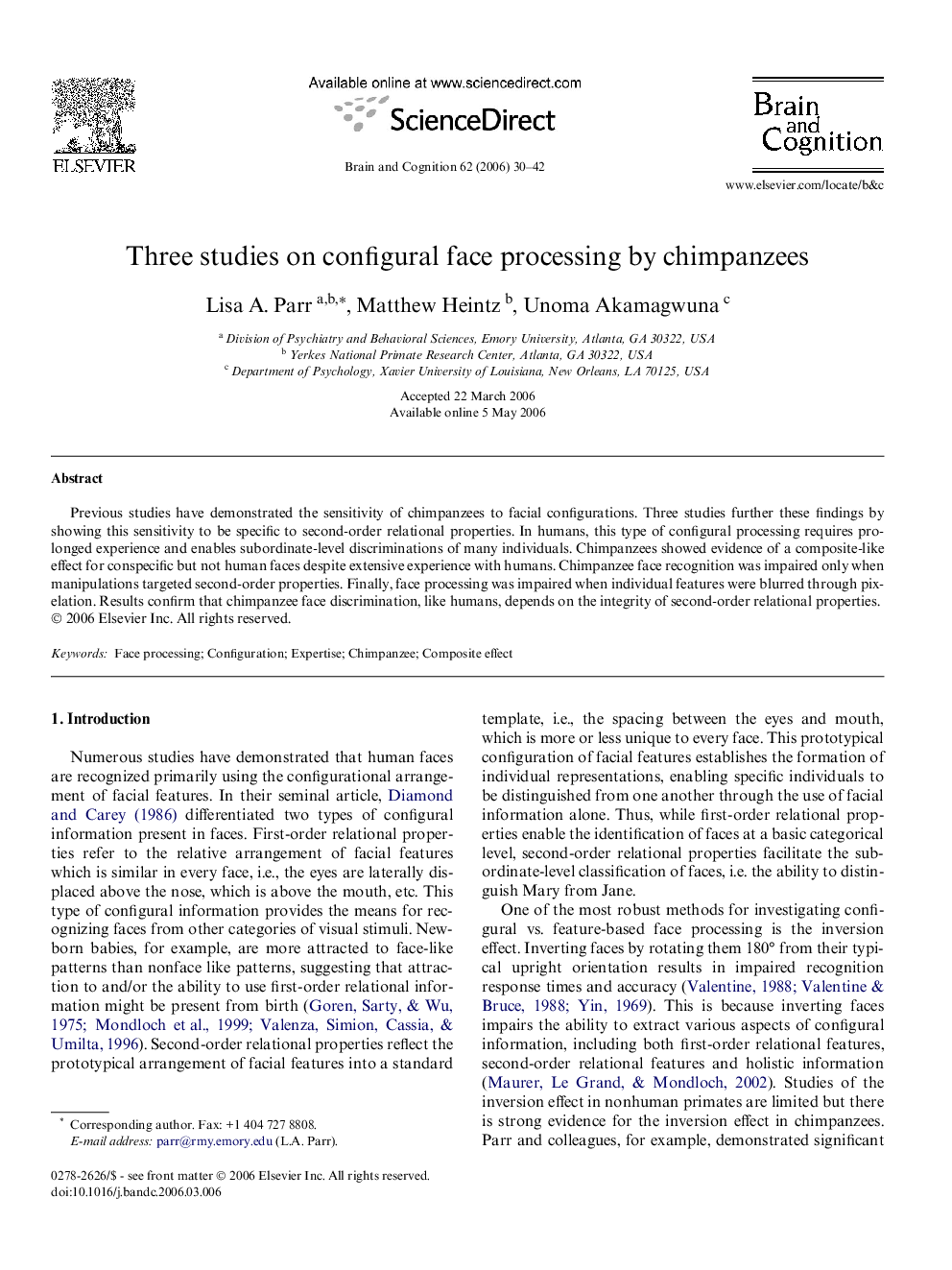| Article ID | Journal | Published Year | Pages | File Type |
|---|---|---|---|---|
| 925118 | Brain and Cognition | 2006 | 13 Pages |
Previous studies have demonstrated the sensitivity of chimpanzees to facial configurations. Three studies further these findings by showing this sensitivity to be specific to second-order relational properties. In humans, this type of configural processing requires prolonged experience and enables subordinate-level discriminations of many individuals. Chimpanzees showed evidence of a composite-like effect for conspecific but not human faces despite extensive experience with humans. Chimpanzee face recognition was impaired only when manipulations targeted second-order properties. Finally, face processing was impaired when individual features were blurred through pixelation. Results confirm that chimpanzee face discrimination, like humans, depends on the integrity of second-order relational properties.
